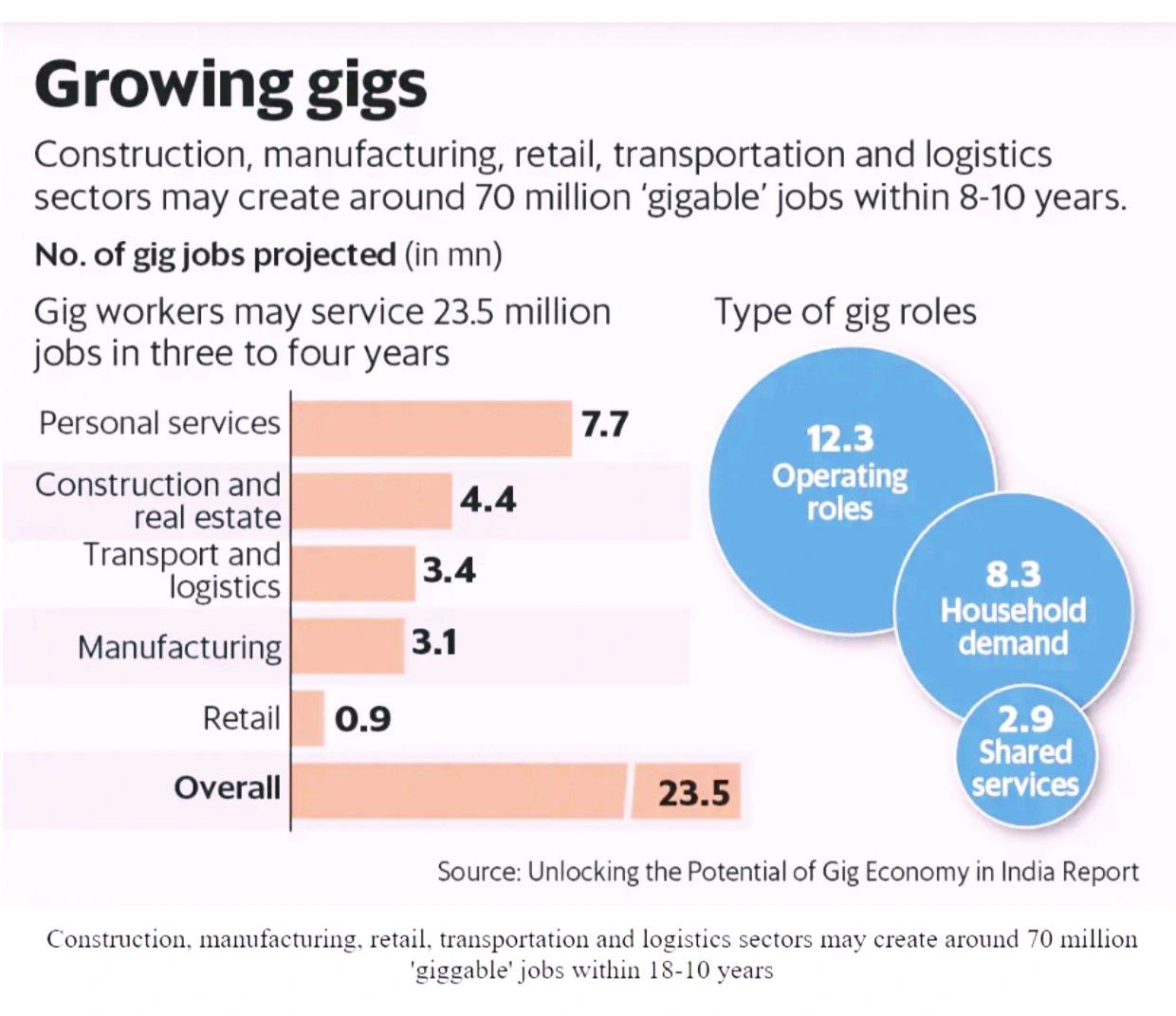The Government’s Push for Gig Worker Welfare: A Game Changer for India’s Economy

The Indian government’s decision to bring 1 crore gig workers under the PM Jan Arogya Yojana (PMJAY) and register them on e-Shram marks a significant milestone in the formalization of the gig economy. With NITI Aayog projecting that the gig workforce will triple to 2.35 crore by 2029-30, ensuring their financial security and social welfare is critical for economic stability and growth.
The Growing Influence of the Gig Economy
India’s gig economy has witnessed exponential growth, fueled by rising demand from quick commerce and food aggregators. The flexibility, autonomy, and income opportunities provided by gig platforms have attracted a vast workforce, making it a key driver of employment generation. A recent white paper suggests that the gig sector could contribute 1.25% to India’s GDP by 2030 and create an estimated 9 crore jobs in the long run.
Social Security for Gig Workers: A Timely Intervention
Historically, gig workers have operated without the benefits of traditional employment, such as health insurance, pension schemes, and financial stability. By extending PMJAY benefits to gig workers and ensuring their registration on e-Shram, the government is addressing these crucial gaps. This move ensures healthcare access, social security, and improved financial inclusion, empowering workers in the long term.
Budget 2025: A Forward-Looking Approach
The Budget 2025 reinforces the government’s commitment to fostering a robust gig workforce through:
Skilling initiatives to enhance employability
AI-driven education programs to align workers with the digital economy
Startup funding to encourage entrepreneurial ventures
Employment-led tourism initiatives to create diverse job opportunities
These strategic investments will not only boost workforce readiness but also position India as a global leader in the gig economy.
The Future of Work is Now
The gig economy is no longer a distant vision—it’s a present-day reality, fueling innovation, entrepreneurship, and economic resilience. As India embraces this shift, policy reforms, financial safeguards, and continuous upskilling will be essential to unlocking its full potential.
With gig workers at the forefront of economic transformation, their inclusion in social security schemes signals a new era of inclusive growth, paving the way for a more sustainable and equitable future.
